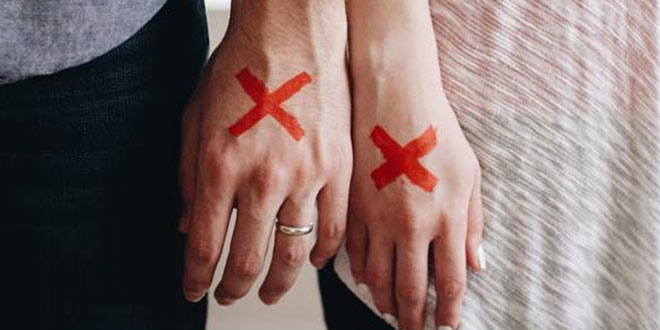New Delhi: ‘This relationship isn’t working; I am breaking up with you,’ says a girl to a plastic bottle, plastic bag, plastic straw, plastic cup – basically every single-use plastic item in the short film released by the United Nations Environment Programme (UNEP). The movie is being called ‘Break-Up’, and hopes to drive home a message this Valentine’s Day – Give up the toxic relationship with plastics and find a new love by starting a forever relationship with alternatives like a cloth shopping bags and metal or glass water bottles, re-usable coffee mugs.
‘The Break-up’ is part of the Clean Seas campaign by UNEP to address the global challenge of plastic pollution and hopes to change the reality of 2050 when there will be more plastic than fishes in the oceans.
Also Read: This Valentine’s Day, Let’s ‘Break-Up’ With Single Use Plastic: Actor Dia Mirza
Talking about the film, head of UN Environment Programme Erik Solheim said,
Through this film, we are urging people to break up with throwaway bottles, straws, utensils and bags and help turn the tide on plastic waste. A two-minute Valentine’s Day film, “It’s not me, it’s you” explores dependence on single-use plastics through the story of a difficult break-up, but the video has a happy ending: A newfound love in sustainable alternatives. That’s should be the story of everyone.
He further adds,
Our love-in with disposable plastics has a toxic side effect and it is high time we understand that.
Watch the film here
This #ValentinesDay, let’s ‘break-up’ with this toxic relationship! It's time we end our relationship with single-use plastics.????️????????
Join us with @deespeak as we find our new love with @UNEP for #CleanSeas!https://t.co/BJFAeD7OWH pic.twitter.com/XMFsiNj9fp
— United Nations in India (@UNinIndia) February 12, 2018
Also Read: No Straws Please! Five Alternatives You Can Go For To Sip Your Beverages
How Plastic Is Killing Our Planet
According to the scientists every square mile of oceans contains about 46,000 pieces of floating plastic. Every single year, approximately 1 million birds, and 100,000 whales, sharks, seals, dolphins and turtles die because of plastic pollution. A recent research by Joleah Lamb at Cornell University in Ithaca, New York, and her colleagues showed that there is about 1.1 billion plastic items in coral reefs across the Asia-Pacific and it is an increase of 40 percent within seven years.
So now that the danger plastic poses to the planet is apparent, how do you intend to ‘break-up’ with plastic in your life? Tell us in the comments box below.




























